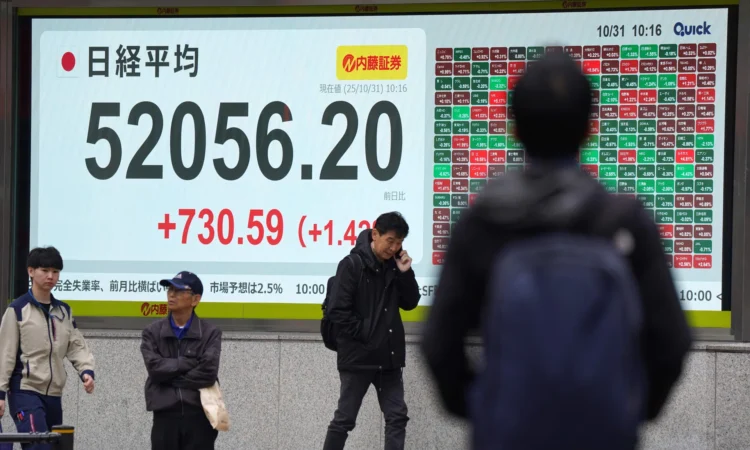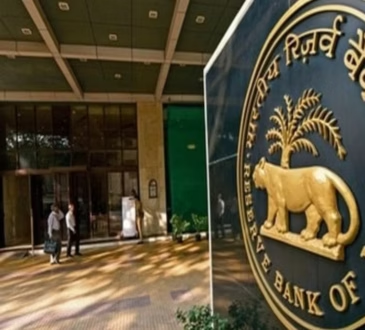
ASIAN stock markets mostly rose Friday morning, with a surge in Japanese shares coming after better-than-expected earnings reports from US tech behemoths Apple and Amazon.
Investor confidence in artificial intelligence has fuelled a rally in global stock markets this week that saw California-based chip designer Nvidia become the first-ever US$5 trillion firm.
Rosy sentiment was further boosted by a detente in the US-China trade war, with top leaders agreeing Thursday to walk back punitive measures that had disrupted international supply chains and manufacturing sectors.
But that boom showed signs of flagging Thursday, as investors processed comments the previous day by US Federal Reserve Chair Jerome Powell that cast doubt on another interest rate cut in December.
The three major Wall Street indices retreated, with the Nasdaq dropping the most at 1.6 per cent.
After US markets closed, an earnings report released by Apple showed quarterly revenue that beat estimates, powered by iPhone and services revenue.
BT in your inbox

Start and end each day with the latest news stories and analyses delivered straight to your inbox.
Amazon also reported earnings that were better than expected, driven by surging demand for its cloud computing services.
In Friday morning of Asian trading, Tokyo’s main benchmark surged by more than one per cent, while Seoul, Sydney and Taipei were also up.
Japan’s climb came despite a sharp plunge of nearly eight per cent in Nissan shares, after the automotive giant said it expected to suffer an operating loss in its current fiscal year ending in March.
In Hong Kong, shares of Chinese electric vehicle powerhouse BYD fell by more than five per cent after results announced Thursday evening showed a 33-per cent year-on-year slump in third-quarter profit.
Stock exchange benchmarks in Hong Kong and Shanghai were both slightly down on Friday morning.
“While (BYD’s) near-term domestic growth may face headwinds from ongoing price discipline and evolving government policies, the international segment offers a robust counterbalance,” said HSBC analyst Yuqian Ding in a report.
Challenges in the Chinese economy were further highlighted by official data on Friday that showed factory activity shrinking in October for the seventh month in a row.
Thursday’s meeting between US President Donald Trump and Chinese counterpart Xi Jinping saw the leaders strike several key deals that had been anticipated by observers.
Among them, Washington agreed to cut some tariffs on Chinese goods, and Beijing committed to keep supplies of critical rare earths flowing.
Trump and Xi have not yet signed a comprehensive trade agreement, and experts say the meeting amounts to a tentative one-year truce in the trade war between the world’s top two economies. AFP






